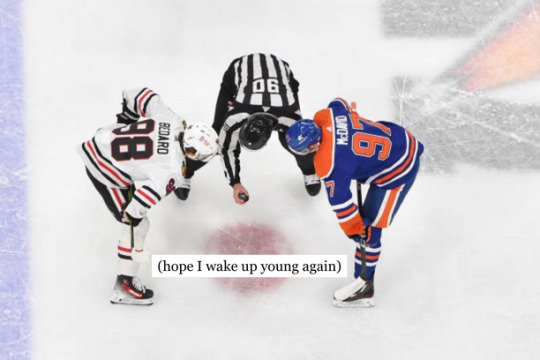#narratives
Explore tagged Tumblr posts
Quote
We are never more (and sometimes less) than the co-authors of our own narratives.
Alasdair MacIntyre, After Virtue
105 notes
·
View notes
Text
Corporate Bullshit

I'm coming to BURNING MAN! On TUESDAY (Aug 27) at 1PM, I'm giving a talk called "DISENSHITTIFY OR DIE!" at PALENQUE NORTE (7&E). On WEDNESDAY (Aug 28) at NOON, I'm doing a "Talking Caterpillar" Q&A at LIMINAL LABS (830&C).

Corporate Bullshit: Exposing the Lies and Half-Truths That Protect Profit, Power, and Wealth in America is Nick Hanauer, Joan Walsh and Donald Cohen's 2023 book on the history of corporate apologetics; it's great:
https://thenewpress.com/books/corporate-bullsht
I found out about this book last fall when David Dayen reviewed it for the The American Prospect; Dayen did a great job of breaking down its thesis, and I picked it up for my newsletter, which prompted Hanauer to send me a copy, which I finally got around to reading yesterday (I have gigantic backlog of reading):
https://pluralistic.net/2023/10/27/six-sells/#youre-holding-it-wrong
The authors' thesis is that the business world has a well-worn playbook that they roll out whenever anything that might cause industry to behave even slightly less destructively is proposed. What's more, we keep falling for it. Every time we try to have nice things, our bosses – and their well-paid Renfields – dust off their talking points from the last go-round, do a little madlibs-style search and replace, and bust it out again.
It's a four-stage plan:
I. First, insist that there is no problem.
Enslaved people are actually happy. Smoking doesn't cause cancer. Higher CO2 levels are imaginary and they're caused by sunspots and they're good for crop yields. The hole in the ozone layer is only a problem if you foolishly decide to hang around outside (this is real!).
II. OK, there's a problem, but it's your fault.
An epidemic of on-the-job maimings is actually an epidemic of sloppy workers. A gigantic housing crash is really a gigantic cohort of greedy, feckless borrowers. Rampant price gouging is actually a problem of too much "spending power" (that is, "money") in the hands of working people.
III. Any attempt to fix this will make it worse.
Equal wages for equal work will cause bosses to fire women and people of color. Protecting people with disabilities will cause bosses to fire disable people. Minimum wages will cause bosses to buy machines and fire "unskilled" workers. Gun control will only increase underground gun sales. Banning carcinogenic pesticides will end agriculture as we know and we'll all starve to death.
IV. This is socialism.
Income tax is socialism. Estate tax is socialism. Medicare and Medicaid are socialism. Food stamps are socialism. Child labor laws are socialism. Public education is socialism. The National Labor Relations Act is socialism. Unions are socialism. Social security is socialism. The Fair Labor Standards Act is socialism. Obamacare is socialism. The Civil Rights Act is socialism. The Occupational Health and Safety Act is socialism. The Family Medical Leave Act is socialism. FDR is a socialist. JFK is a socialist. Lyndon Johnson is a socialist. Carter is a socialist. Clinton is a socialist. Obama is a socialist. Biden is a socialist (Biden: "I beat the socialist. That's how I got the nomination").
Though this playbook has been in existence since the nation's founding, the authors point out that from the New Deal until the Reagan era, it didn't get much traction. But starting in the Reagan years, the well-funded network of billionaire-backed think-tanks, endowed economics chairs, and latter-day propaganda vehicles like Prageru breathed new life into these tactics.
We can see this playing out right now as the corporate world scrambles for a response to the Harris campaign's proposal to address price-gouging. Reading Matt Stoller's dissection of this response, we can see the whole playbook on display:
https://www.thebignewsletter.com/p/monopoly-round-up-price-gouging-vs
First, corporate apologists insisted that greedflation didn't exist, despite the fact that CEOs kept getting on earnings calls and boasting to their investors about how they were using the excuse of inflation to jack up prices:
https://pluralistic.net/2023/03/11/price-over-volume/#pepsi-pricing-power
Or the oil CEOs who boasted that the Russian invasion of Ukraine gave them cover to just screw us at the pump:
https://pluralistic.net/2022/03/15/sanctions-financing/#soak-the-rich
There are all these out-in-the-open commercial entities whose sole purpose is to "advise" large corporations about their prices, which is just a barely disguised euphemism for price-fixing, from meat-packing:
https://pluralistic.net/2023/10/04/dont-let-your-meat-loaf/#meaty-beaty-big-and-bouncy
To rents:
https://pluralistic.net/2024/07/24/gouging-the-all-seeing-eye/#i-spy
That's stage one: "there's no problem." Stage two is "it's your fault." That's Larry Summers and co insisting that a couple of stimulus checks a couple years ago are responsible for inflation, because it gave you too much "buying power," and so the only possible fix is to jack up interest rates and trigger mass layoffs and sharp wage decreases across the economy:
https://pluralistic.net/2022/12/14/medieval-bloodletters/#its-the-stupid-economy
Stage three is "any attempt to fix this will make it worse." When Isabella Weber pointed out that there was a long history of price-controls being used to fight price-gouging, corporate apologists lost their minds and brigaded her, calling her all kinds of nasty names and insisting that her prescription didn't even warrant serious discussion, because any attempt to control prices would destroy the economy:
https://www.theglobeandmail.com/podcasts/lately/article-the-millennial-economist-who-took-on-the-world/
You may recognize this as cousin to the response to rent control proposals, which inevitably trigger a barrage of economists screaming that this will not work and will actually reduce the housing supply and drive up prices, which is true, provided that you ignore all evidence and history:
https://pluralistic.net/2023/05/16/mortgages-are-rent-control/#housing-is-a-human-right-not-an-asset
And stage four is "this is socialism." Look, I am a literal card-carrying member of the Democratic Socialists of America and I can assure you, Kamala Harris is not a socialist (and more's the pity). But that didn't stop the most eminently guillotineable members of the investor class from hair-on-fire, ALL-CAPS denunciations of the Harris proposal as SOCIALISM and Harris herself as a COMMUNIST:
https://twitter.com/Jason/status/1824580470052725055
The author's thesis is that by naming the playbook and giving examples of it – for example, showing how the "proof" that minimum wage increases will destroy jobs was also offered as "proof" not to abolish slavery, ban child labor, add fireproofing to textile factories, and pay women and Black people the same as white guys – we can vaccinate ourselves against it.
Certainly, we've reached a moment where the public is increasingly skeptical of claims that we can't fix anything because the economists say that this is the best of all possible worlds, and if that means that we're all going to boil to death in our own skin, so be it:
https://pluralistic.net/2022/10/27/economism/#what-would-i-do-if-i-were-a-horse
In other words, after 40 years of subordinating politics to economics, there's a resurgence of belief in politics – that is, doing stuff – rather than hunkering down and waiting for the technocrats to fix everything:
https://www.programmablemutter.com/p/seeing-like-a-matt
Corporate Bullshit is a brisk and bracing read – I got through it in about an hour in my hammock yesterday – and, in laying out the bullshit playbook's long history of nonsensical predictions and pronouncements, it does make a very good case that we should stop listening to people who quote from it.

If you'd like an essay-formatted version of this post to read or share, here's a link to it on pluralistic.net, my surveillance-free, ad-free, tracker-free blog:
https://pluralistic.net/2024/08/19/apologetics-spotters-guide/#narratives
#pluralistic#narratives#lakoff#joan walsh#david cohen#nick hanauer#apologetics#bullshit#history#books#reviews#gift guide
245 notes
·
View notes
Text
One of the MOST cinematic moments in the FACEOFF NHL documentary - EP 3, EP 5 Connor McDavid in his living room watching a Pens game as the narration is talking about him being the best player in the world (or something similar) and we get a close up of Sidney Crosby IN the GAME on the tv - LIKE IT WAS THE FOCUS EVEN THOUGH IT WAS IN THE BACKGROUND. And we hear the commentators saying something along the lines of Sidney Crosby attempting to DRAG the Pens to the playoffs. I was SCREAMING at the SHEER CINEMATIC MOMENT, but also the editors KNEW exactly what they were doing. It was GLORIOUS.
Somebody who knows how to gif or screen capture Amazon Prime shows NEEDS to get this moment.
89 notes
·
View notes
Text
Many narratives that come with the oilers panthers scf but an underrated one is that Connor McDavid and Sam Bennett have known each other since kindergarten and are childhood friends. They grew up living 10 minutes away from each other and played together for 7 years as kids. Connor is on the left, Sam is on the right and Travis Dermott is second to the right!



166 notes
·
View notes
Text
I think we should also look at the stories we tell ourselves about how to solve systemic problems. In Hollywood, it’s the lone-wolf vigilante or rogue C.I.A. agent who breaks the rules, takes revenge and makes things better. People are naturally drawn to a character they can cheer for, rather than analyses of power and policy and prolonged slogs to change how the system works.
Zeynep Tufecki in a New York Times conversation on the killing of the UnitedHealthcare chief executive, and the public reaction to it.
Posted because: I would love there to be more films (hell, written fiction!) about systems not people, but the former is hard to dramatise while the latter is a long-standing form of storytelling.
Via kottke (also the source of the article gift link).
#quote#zeynep tufecki#new york times#hollywood#storytelling#vigilantes#luigi mangione#united healthcare#brian thompson#systems#infrastructure#narratives
26 notes
·
View notes
Text










Don't let those demons in again I fill the void up with polished doubt, fake sentiment
False Confidence - Noah Kahan
#the inherent nature of becoming a sacrificial lamb as a first overall draft pick#the cycle repeats#sidney crosby#erik johnson#taylor hall#nathan mackinnon#rasmus dahlin#connor mcdavid#auston matthews#jack hughes#connor bedard#hockey poetry#hockey poem#hockey web weaving#narratives
131 notes
·
View notes
Text
[>a desert spanning out for miles
> (cold, glittering sand sings to the stars above. a moonless sky.)

the sand flows over your limbs like water. on your skin it feels like the sounds the sea makes. you can't quite move yourself, no matter how much you try. despite knowing that you do have a body, it seems to be detached from you besides that soft feeling of flowing sands.
unable to move, you lay there and wait for the panic to kick in. wait for the gut wrenching anxiety that has brought you out of bed every day, all this time.
yet it never comes.
out of nowhere, the moon appears and stares down at you
as the sand slowly settles
and the stars blinks indifferently
there is not a single gust of wind.

you think about your mother, and find yourself unable to recall how she looked the last time you saw her. you try to picture your father walking up the stairs, the clouds when you left, your best friend's smile, the junction where you saw a girl lying by a bus, the sun that burned the tarmac. but they slip pass you like a stream of silvery fish. with all your might you reach into your head, trying to grasp onto anything, anything at all.
there was nothing left.
and then it floats up to the surface, noiselessly like a bubble in a pond. a face that you'd carefully buried under the mundane ghost you'd become to stay alive, or so you always tell yourself.
"give it to me", the moon says.
you hurriedly, and carefully, put the face back into its shallow grave. not yet.
the moon smiles, "your loss".
and just like that, everything and everyone you knew, all but one, are gone from your mind. you are now an orphan in the desert.
#illustration#drawing#writing#impossible nomad#poll#storytelling#narratives#fiction#3ww#atticus#art#artists on tumblr#poetry#postcard from nowhere
148 notes
·
View notes
Text

24 notes
·
View notes
Text
A few months ago I saw a tweet about how well HBO Girls captured the way that many young men oscillate between being pathetic and being absolutely terrifying. I have never seen Girls so I can neither confirm nor deny that part, but I do think that tendency appears in men in reality and also in my erstwhile friend Lestat de Lioncourt. One minute I think "wow, look at this ridiculous clown embarrassing himself trying to be a big powerful man" and the next minute I think "oh he's going to kill his entire family." And this makes him scarier and more real, because many of the things that set Lestat off are absurd, silly things to get mad about, and you want to laugh until you realize the danger. I think this is a sharp contrast to the classic "dark romance" or whatever we're calling it male lead, who's such an authoritative, imposing figure. Lestat is authoritative and imposing but in a way that makes it easier to let your guard down (and thus more insidious.) This all ties into the Margaret Atwood line that "men are afraid that women will laugh at them; women are afraid that men will kill them." They will kill you for laughing at them, or they'll try to kill you and everyone will laugh at you because that sobbing pathetic mess can't really be a threat, right?
15 notes
·
View notes
Text

― Daniel Nayeri, Everything Sad Is Untrue
#Daniel Nayeri#words#on stories#narratives#why does tragedy exist etc etc#for keeps#I am absent because I am the teller. Only the tale is real.
41 notes
·
View notes
Text
Has any character ever haunted the narrative quite as hard as Polites?
21 notes
·
View notes
Quote
Metaphysicians want everyone to believe that empiricism, which means all reality and substantial existence, is nothing to them, they need only pure ideas for their existence. In order to keep up this fiction, they appear before the world invested in a purple veil of fine words. The crowd knows perfectly well that it is all a take-in, but since it likes shows and bright colours, and since also it has no ambition to appear too knowing, it rarely betrays that it has caught the trick of the comedy.
Lev Shestov, All Things Are Possible
#philosophy#quotes#Lev Shestov#All Things Are Possible#metaphysics#empiricism#ideas#idealism#myth#mythology#stories#narratives
38 notes
·
View notes
Text
Something my mind is currently gnawing at is this concept of: "What do characters do once their story is over." This mainly comes from writing fanfics - because I write a lot of post-canon stuff. Though it really got bad with writing more in the Forgotten Realms and interacting more with that world.
Because here is the thing: My main fandoms before that (Digimon and the Netflix Castlevania) had an endstate of sorts. Like, sure, from time to time the characters might have to deal with another thing, but most of the stuff would be fairly easily contained. (He said, after having written a 150k sequel for Castlevania, and a total of 500k for Digimon Tamers, but we do not talk about that...)
But the thing about the Forgotten Realms: This is a world that mainly exists so that player characters can have their adventures and safe the world. Ergo: This world is on the brink of being destroyed by powers from beyond the world every other Tuesday. And how the fuck is anyone ever going to have a happy end here.
Great, you saved the city. Also, someone tried to kill Mystra again. Oh wow, you saved her. Great, well, someone found an item that might destroy the world. Ah, you found a way to put that in another plane. Well, there is this evil god who came back from the dead.
How the fuck is anyone ever going to have a happy end in this world unless they die?
Like, I know among DnD players this is also kinda a thing. Very few characters ever get to properly retire. But yeah, the main issue is, that if you play characters in this world, they tend to end up fairly powerful at some point. Meaning, that just from the sense of the people in that world it would make a lot of sense to throw these characters at whatever evil god is trying to destroy the world or enslave a city this week. And if the characters are of a good-alignment, chances are they would feel shitty if they said: "Yeah, actually, I was thinking... Shouldn't someone else get to save the fucking world for once?"
You know, when Avengers: Endgame came out, a lot of people were so pissed with the ending for Steve. Because it felt so out of character for Steve to go back in time and then watch all of the stuff happen after his "happy end". How would he be happy knowing the bad things that would happen? How would he be happy not actually trying to stop them?
And ironically the Marvel stuff or superhero stuff in general really also speaks to this. Because yeah, the superheroes kinda have the same issue. Their world is threatenened on at least a yearly basis. Stuff is always going to try and end the fucking world. And they are probably the only ones who can stop that.
So there never is a happy end. There is no "They lived happily ever after". There is just a constant: "Save the world, lick your wounds, and do it all over again until at some point you die." (And lets face it, in that case you get to be dead for a couple of years, before someone inevitably revives you, because by now I am fairly certain even Gwen Stacy is back among the living.)
#late night rambles#narratives#meta narratives#forgotten realms#dungeons & dragons#dnd#happy ending#marvel#dc comics#mcu#dcu#superheroes
10 notes
·
View notes
Text
marchand working against seguin
13 notes
·
View notes
